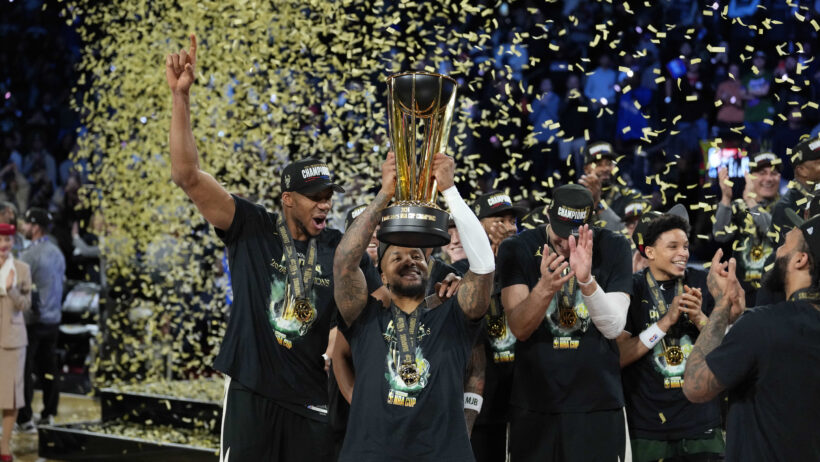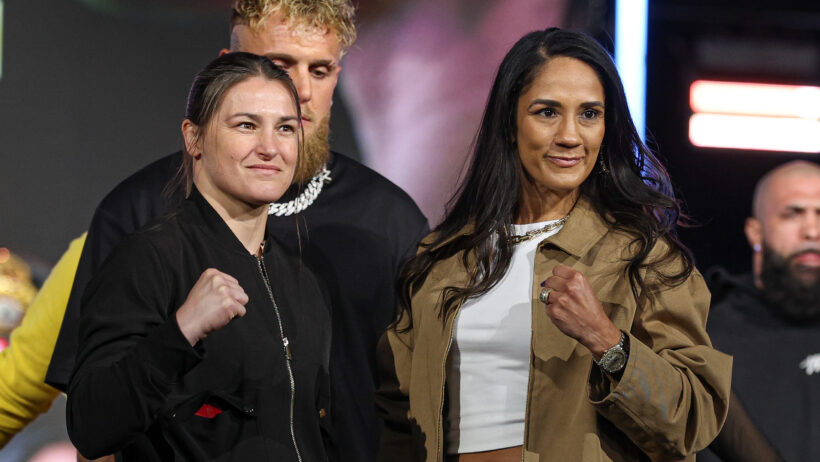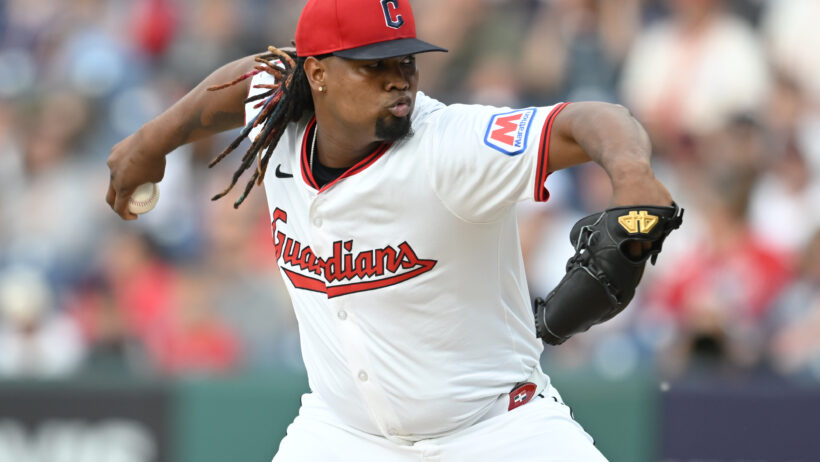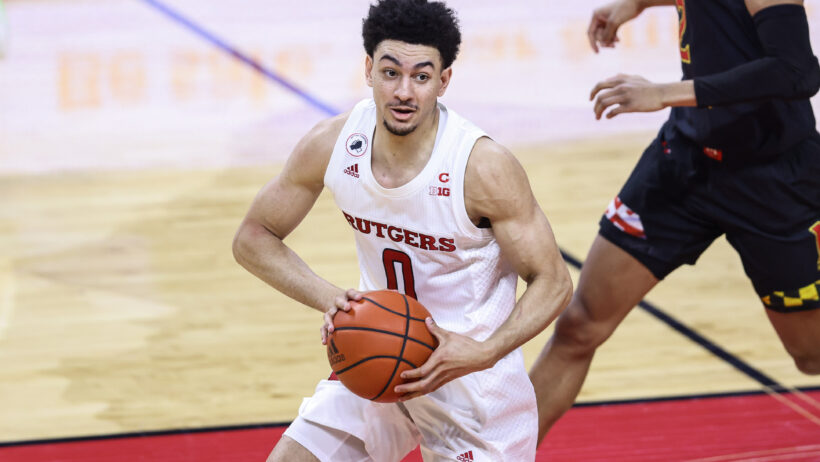Is Tim Donaghy Telling the Truth?
By Aaron Gray
Updated:
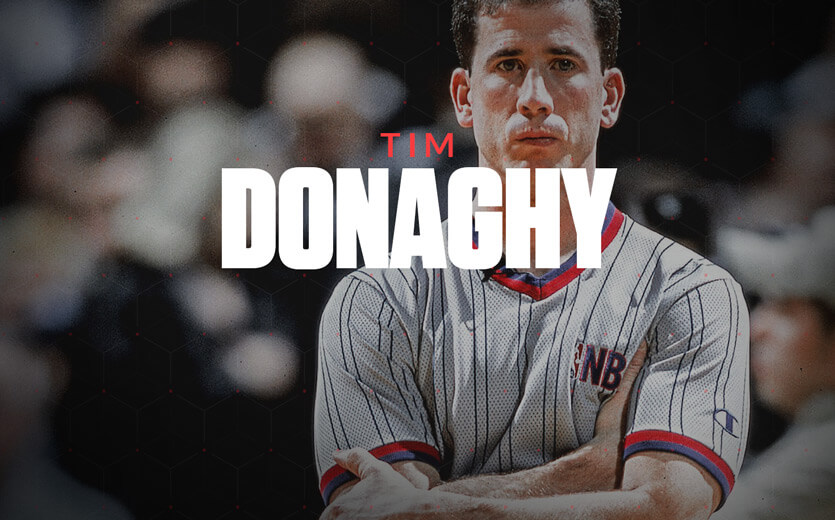
After being thrust into the public eye as part of a federal investigation in 2007, disgraced NBA referee Tim Donaghy has lent legitimate credence to the oldest conspiracy theory in sports, which is that gambling interests occasionally compromise the integrity of pro sports. To date, no other referee, linesman, umpire, or in-game official in the big four North American sports has ever been indicted, much less arrested, for anything related to game or match-fixing.
Donaghy, who pled guilty to violations of the Wire Act (for transmitting gambling information across state lines), admitted to wagering on NBA games between 2005-2007. Firm conclusions on Donaghy’s culpability in gambling-related match-fixing have never been reached or fully resolved, and myriad questions still swirl around the reality of what actually transpired under the watch of both Donaghy and his co-conspirators.
Tim Donaghy has come to represent something much more significant than himself; his arrest and subsequent guilty plea and imprisonment served as a stand-in for a traumatic gap in the symbolic order of impartiality, fairness, and transparency that professional sports are predicated on.
A closer look into still murky details reveals a fascinating story, a nexus of sports betting, the mafia, and a host of salacious details about both the NBA and professional sports at large.
Who Is Tim Donaghy?
Before becoming a referee, Donaghy had a relatively nondescript and ordinary career track. He graduated from Villanova University in 1989 (contrary to many reports, he did not play varsity baseball during his college tenure).
After graduation, he officiated high-school basketball in Pennsylvania for five years, and then spent seven seasons in the Continental Basketball Associated. He joined the NBA in 1994, where he worked as a referee for 13 years, officiating 772 regular season games and 20 playoff games before his unceremonious departure in 2007.
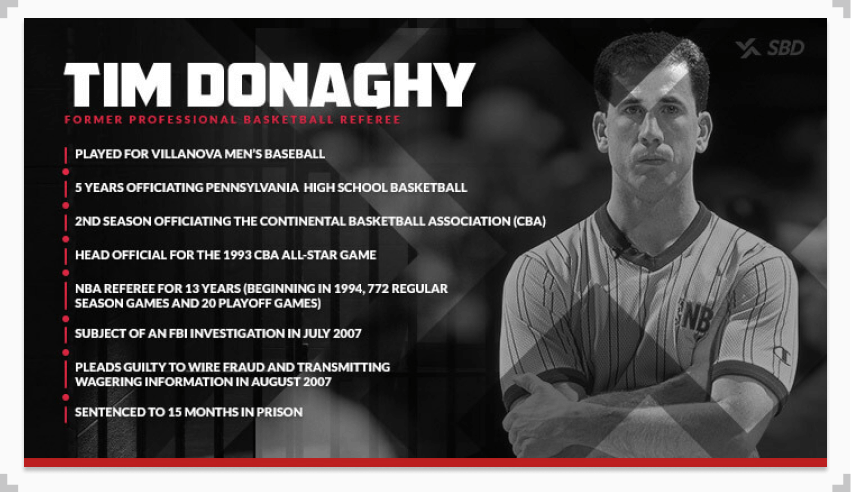

Unbeknownst to many, Donaghy was one of three referees working the night of the “Malice at the Palace” (a.k.a. the Pacers-Pistons brawl on November 19th, 2004) where nine players were suspended for a total of 146 games, leading to the forfeiture of over $11 million in salary and five assault charges.
Maybe that was just coincidence, or maybe Tim Donaghy has a flair for the dramatic; either way, he’s been at the center of two of the most infamous incidents in the history of the NBA.
Donaghy’s Gambling Problem and Mob Involvement: The Machinations of His Sports-Betting Ring
Tim Donaghy, by his own admission, had a gambling problem even before he started working for the NBA. He began betting on his golf games, moved into being a casino regular, and eventually, he started betting on sports. Of course, NBA regulations expressly prohibit its officials from gambling of any sort.
The details around when, exactly, Donaghy first wagered on an NBA game are contentious, but investigators have suggested that it was around 2003.
How Was He Getting Away With This?
Of course, Donaghy wasn’t placing bets on sports himself. He was too scared of being discovered.
Instead, he used high-school friend Tommy Martino as a conduit between him and the bookies, who had ties to the Gambinos, a prominent Philadelphia-based crime family.
Betting under the aegis of Martino, Donaghy was able to bet without issue for approximately three years. What got Donaghy in trouble was his unusual predictive ability; he was winning around 80% of his bets, which raised more than a few eyebrows.
The bookmakers receiving Donaghy’s bets pressed his intermediary as to why he was winning at such an impressive clip. Eventually, Martino revealed that he was placing bets for an NBA ref.
After hearing this, the mob wanted a piece of the action; they wanted access to Donaghy’s insider information. And just like in the movies, the mob wasn’t asking.
According to an FBI report, after discovering that Donaghy had been placing bets through a mob-connected bookmaker, two men linked to the Gambino family picked up Donaghy from the Philadelphia airport and “took him for a ride.” In an interview with 60 Minutes, Donaghy described the meeting as follows:
“They basically told me that I needed to give them the picks. And if I didn’t that it’s a possibility that somebody would go down and visit my wife and kids in Florida.”
Donaghy thought the threats were real – or at the very least, he wasn’t willing to find out. He started to feed to mob picks shortly afterward.
How Did The Scheme Work, Exactly?
Once he started working for the mob, the Donaghy betting ring was completed mainly by two other men, Martino and James Battista. Martino acted as the intermediary between Donaghy and Battista, who was a bookie and professional gambler.
Donaghy’s operation was straightforward; he would exchange tips in exchange for cash, and then bookies would place bets based on Donaghy’s insider information.
To avoid detection, Donaghy and his co-conspirators used coded language to transmit information about a player’s physical condition, and the relationships between referees and select NBA players.
According to an FBI affidavit, Donaghy was paid $2,000 for each winning pick. Later, Donaghy’s compensation was upped to $5,000 per winning pick. He claims that millions were made everytime he picked a winner, and with the mob, his winning percentage sat somewhere between 70-80%.
Mob Involvement Ultimately Brings Donaghy Down
Ultimately, it was Donaghy’s relationship with the mafia that led his imprisonment. The FBI was actively monitoring Gambino-related phone calls and heard that an NBA ref was betting on games. This information made it onto the desk of Special Agent Philip Scala, who was the lead investigator tailing the Gambino family.
Scala would go on to charge Donaghy and his co-conspirators.
Donaghy was caught not because anyone suspected him or his co-conspirators of wrongdoing; he was subsumed in a broader organized-crime investigation. Without his mob ties, Donaghy could feasibly still be an NBA referee.
Donaghy’s Involvement in the Sports Betting Scandal
Donaghy pleaded guilty to two federal charges in August 2007 and served 15 months in jail.
More specifically, Donaghy pleaded guilty to conspiracy to engage in wire fraud and transmitting betting information through interstate commerce. Donaghy’s charges referenced his illicit activity during the 2005-06 and 2006-07 seasons when he refereed 68 games and 63 games, respectively, plus another 20 playoff games.
He admitted to leveraging his insider information to bet on games, including many games that he was officiating. What Donaghy admits to, according to a 2011 interview with The New York Times, is tantamount to Wall Street insider trading, “except that [he] didn’t affect the economy.”
Critically, Donaghy did not admit, and still vehemently denies, ever fixing the result of a game because he was gambling on it. However counterintuitive this may seem, both the NBA and the FBI would ultimately accept Donaghy’s narrative.
Donaghy had a nightmarish stint in federal prison. He was assaulted on multiple occasions and frequently derided as a “rat” for rolling over on his co-conspirators in exchange for a shortened sentence. Donaghy wasn’t safe from the mob in prison either, as a targeted, retributive attack saw him jumped and beaten with a paint roller, forcing him to undergo surgery for a torn lateral meniscus.
The Official Record of Donaghy’s Impact on NBA Games
Officially, the FBI states that Donaghy “compromised his objectivity as a referee because of his financial interest in the outcome of NBA games, and that his personal interest might have subconsciously affected his on-court performance.” They stop short of saying that he ever intentionally fixed games, despite the fact he stated under oath that he was betting on the very same games that he was refereeing.
Scala told 60 Minutes that, “Watching the tapes, we could see there was never anything outlandish where he called a foul, or he omitted a foul because he wanted to see a certain team win. We never saw that.”
The NBA’s investigation came to a similar conclusion, stating: “It seems plausible to us that Donaghy may not have manipulated games,” and that they were “unable to contradict” the FBI’s official rulings. The NBA’s official report was scant, and didn’t provide much, if any, substance.
The Study of the 2006-07 Season
Despite what the official narrative states, there are some who claim that Donaghy was, in fact, influencing the results of games he was refereeing. Many observers have pointed to the fact that there were noticeable trends in the games that Donaghy refereed, and the NBA didn’t do their due diligence to explore these trends.
Covers.com did a study in 2008 to see if they could uncover any consistent trends associated with the games that Donaghy refereed.
They found that, in the 2007 season, when the home team was favored against the spread by 0-4.5 points, it went 5-12. In contrast, underdogs playing at home went 1-7 when the spread was between 5-9.5 points. This means that, if Donaghy was on the other side of these bets, he’d have a 73% success rate, which falls in line with his stated record of 70-80% accuracy on his sports bets.
Could this be a coincidence? Absolutely. Could it suggest that Donaghy was doing everything in his power to influence the point total so that a specific team could cover the spread? Equally likely.
Donaghy was one of three referees working the Knicks-Heat game in New York in February 2007, a game in which the Knicks shot 39 free throws and the Heat shot a mere eight. (The league average was 25.7 in 2006-07.) Miami’s head coach, Pat Riley, and assist Ron Rothstein both received technical fouls, as well.
The Knicks won the game by 6 points; they were favored by 4.5 points in Vegas.
The Gaps in the Official Record
According to Sean Patrick Griffin, author of Gaming the Game, the reason the NBA has never found any evidence that Donaghy was manipulating the results of games was because they weren’t interested in what they might uncover.
In his book, he specifically cites a study done by Kenny White, the lead oddsmaker for Las Vegas Sports Consultants (to this day, still the largest oddsmaking company in the world). White wrote an extensive report centered around his research into the betting trends in the games that Tim Donaghy was involved in.
Even though he uncovered significant and suggestive data – broader and far-reaching than the study by Covers.com mentioned above – the NBA never once contacted him about it.
Why Wouldn’t the NBA Investigate?
The reasons for the NBA to accept the government’s findings are patently obvious; Donaghy pleaded guilty, and he never owned up to actually manipulating the results of games. There was no incentive for the NBA to uncover a culture of gambling, corruption, or dishonesty. First and foremost, the NBA wanted to protect its reputation.
The NBA took a hit, but they didn’t suffer any critical damage to their reputation. It was easy for the league to distance itself from Donaghy and deride him as a bad actor, a black swan.
David Stern was quick to label Donaghy as an “isolated case.”
There’s no question that if the evidence is all hearsay, more people are going to side with the commissioner of the NBA than with a convicted felon and problem gambler.
That aside, there’s no question that Stern’s comments regarding the investigation ring hollow. He stated: “no amount of effort, time or personnel is being spared to assist in this investigation, to bring to justice an individual who has betrayed the most sacred trust in professional sports, and to take the necessary steps to protect against this ever happening again.”
At best, the NBA’s conclusions about match-fixing are superficial.
What is Tim Donaghy Up To Now?
Tim Donaghy is one half of a sports handicapper service, refpicks.com. He still garners headlines from time to time, and he’s gone on the record countless times to promote the fact that those in power within the league manipulate NBA games. Ever since the moment he was arraigned, he’s been a vociferous critic of the NBA.
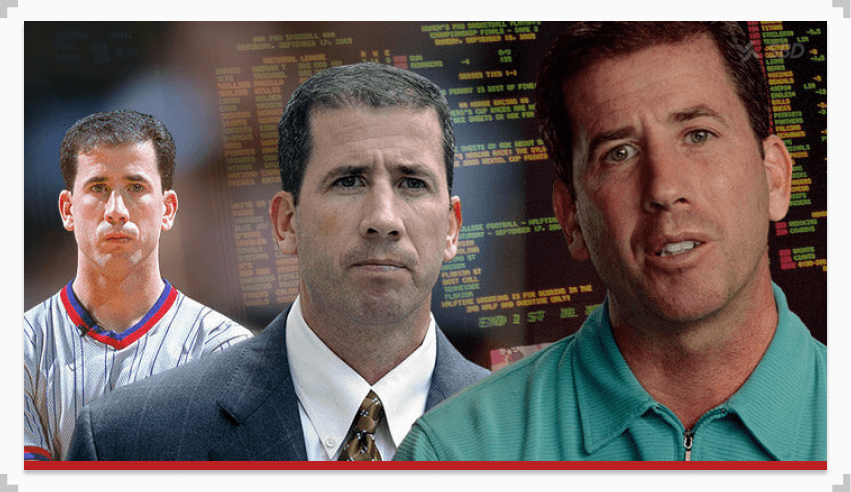
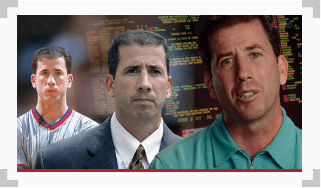
Donaghy firmly believes games are decided on a set of structures that extend far beyond mere ‘fairness,’ and he’s not afraid to anyone who asks know. To this day, he rarely passes up an opportunity to shed light on the larger conspiracy of lopsided NBA officiating, where games are influenced referee’s biases, league PR interests, and television ratings.
What Are Some of His Famous Allegations?
Most famously (and, undoubtedly, most salacious) Donaghy alleges that the 2002 Western Conference Finals, been the Los Angeles Lakers and Sacramento Kings, was manipulated to suit the interests of the league.
Donaghy (who didn’t work the game himself) filed a court document in 2008 that stated that two referees working the game manipulated the final result by calling more fouls on the Kings than the Lakers. This led to a Lakers victory, which tied the series and resulted in the 7th and deciding game.
The Lakers shot 18 more free throws than the Kings in the 4th quarter of game 6, resulting in them winning the game and eventually a championship.
Donaghy specifically alleged that the league instructed the officiating crews to not call technicals on certain players, and to be extra attentive to other calls; the net result would of this increased scrutiny benefited the Lakers.
Game 6 of the 2002 Western Conference Finals is the subject to endless speculation and contention amongst NBA fans. What actually transpired is unlikely to ever be resolved to anyone’s satisfaction.
What Are The Chances This Was All A Conspiracy, and Donaghy Fixed Games?
In many respects, we live in the age of the conspiracy, with PizzaGate, the idea of a ‘Deep State,’ and the flat earth phenomenon all getting significant mainstream coverage over the last couple of years.
These conspiracies, at least to anyone reasonable, are relative long shots.
But that doesn’t mean that some conspiracies are, in fact, probable. The fixing of major sporting events for betting interests falls into that category. It’s possible that Tim Donaghy was fixing matches in favor of the mob’s betting interests, and this has happened with some frequency throughout the history of professional sports.
If Volkswagen is willing to manipulate its emissions software, HSBC will launder money for Mexican drug cartels, and Wells Fargo will create millions of fake accounts for profit, is it really so unimaginable that a couple athletes – or referees – would exercise their power manipulate a point spread? Motivations could easily run the gamut from money to mob threats on their families.
If insider trading and wall street corruption are so endemic, and so many prominent athletes willing to voluntary take performance-enhancing drugs, what’s to suggest that match-fixing isn’t just as rampant? Lance Armstrong is one of the most famous athletes in the history of sports; Barry Bonds and Roger Clemens are debatably the best hitter and pitcher in the history of Major League Baseball; all three have admitted to taking drugs expressly against the rules of their sport.
Would it be challenging to fix a sporting event? No.
Would it have an obvious and coherent set of motivations? Unequivocally.
Can we reasonably expect any of this information to ever come out? More than likely not.
Tim Donaghy might the best window we ever get into betting scams occurring at highest levels of professional sports. Well, the best window for us regular folk.

Sports & Politics Writer
Aaron has been featured in publications such as Intelligence Magazine, The Investing News Network, Haven, Tech Bullion, and many local and national publications. He has contributed to SBD since 2017. Western B.A. '14, NYU M.A. '17.


